In the world of special operations, the moral choices troops must make are "definitely not black and white," Robert Mitchell, associate dean for Joint Special Operations University, acknowledged.
But in recent years, some special operations forces have pushed the envelope on "gray area" behavior, acting in ways that are clearly unethical or illegal, and in cases, even committing war crimes. These high-profile scandals prompted U.S. Special Operations Command to launch a major review to get at the root of the problems plaguing the SOF community.
Read Next: Officer Accused of Force in Stop of Black Army Officer Fired
Now, more than a year after SOCOM unveiled the results of its comprehensive review, the command is making headway on several fronts.
Since the review's January 2020 release, SOCOM has changed its force structure, cut deployments significantly, and centralized leadership and oversight of special operators in the field. The command has also revamped how it trains special operators, with added emphasis on ethical conduct, particularly in morally uncertain environments.
But while the command has taken positive steps -- including publicly releasing the review and discussing the issues it faces -- it still has more work to do, Rand Corp. researcher Linda Robinson said in an April 5 interview.
The review was launched in 2019, after a series of incidents involving special operators including allegations of rape, hazing that led to a soldier's death, and posing for a photograph with a slain enemy combatant.
The finished review recommended 16 ways to improve how SOCOM uses its forces and holds them accountable, how it develops leaders, how its forces are structured, and how it assesses and selects people to become special operators.
Stretched to the Breaking Point
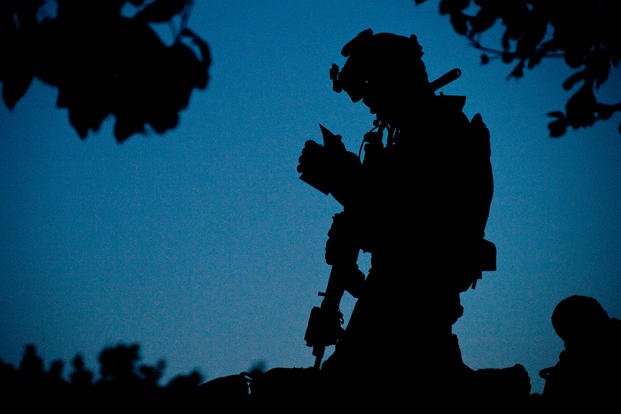
The review began with a focus on culture and ethics, Army Sgt. Maj. Nate Griffin, a Green Beret who serves as the operations sergeant major for the Comprehensive Review Implementation Team, told Military.com.
But as the roughly 45-person review team spoke with SOF troops, retirees and others across the country, it became clear that the root of many problems in the special operations community came down to one hard fact: Operators are stretched to the breaking point.
Over the last two decades of war, the review found, a culture had grown in SOF emphasizing deployments and the need to get the job done above all else. This created an environment where ethical lapses could happen, and leadership and readiness suffered.
"We are too busy," Griffin said. "And our leaders, that are supposed to be co-located with their subordinate elements -- when they get overseas, they're getting spread out. They're meeting mission; they're doing what they've been trained to do on behalf of the nation. But at what cost? And at what kind of tempo?"
The review helped SOCOM pinpoint weaknesses in the command structure of troops in the field and helped it set up more effective oversight, Griffin said. The majority of the most vital recommendations, he said, focused on improving how SOCOM manages its forces, including deployments.
Army Gen. Richard Clarke, head of SOCOM, told the Senate Armed Services Committee on March 25 that after putting these changes into place, the number of special operators employed around the world was cut by about 20%.
SOCOM carried out an audit of its deployed forces against what it had been validated, or authorized by the Joint Staff to send overseas, to find where it had deployed more troops than allowed. Now, Griffin said, only forces that are on validated requirements are forward deployed; excess troops were rotated home.
Eliminating Field Headquarters
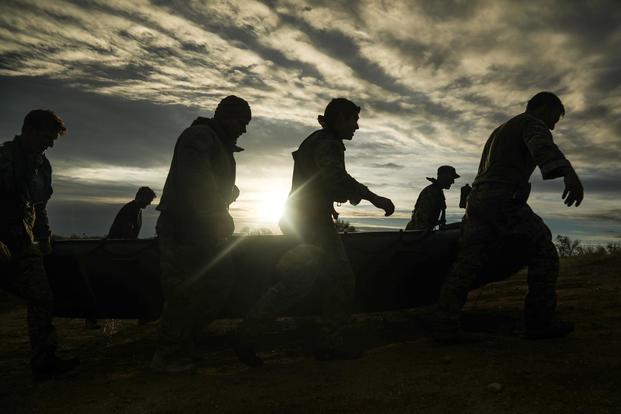
But an even more important change, Clarke said, was cutting the number of headquarters in the field headed by mid-level officers, as part of a bid to increase effective oversight of deployed special operators.
The number of such "ad hoc" command headquarters in the U.S. Central Command area, led by O-5 and O-6 officers, had ballooned in recent years, Griffin said. Theater commanders were ordering them to be stood up in the field, away from more established bases -- without being approved through SOCOM, without the forces there being properly validated and without proper oversight, he said.
This created a leadership problem, SOCOM realized. When such headquarters proliferated, Clarke said, operators had leadership that was "not engaged and present."
"At the end of the day ... it's about engaged leadership to reduce the amount of incidents that SOF has had in the past," he said.
Clarke wanted a clearer picture of what SOF troops were doing in the field, Griffin said, and SOCOM also felt such headquarters were better off headed by higher-level officers. Now, SOCOM's commander has to personally approve the deployment of such command teams.
In fall 2019, Griffin said, SOCOM had 18 of these headquarters being headed by O-6s. Three have since been cut, and two more are expected to follow by the end of fiscal 2022. Griffin was unable to say how many O-5 level headquarters were cut.
Deploy-to-Dwell Ratios
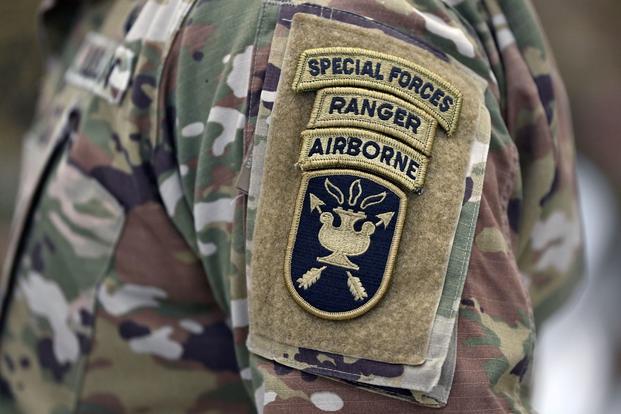
SOCOM also set a stricter criteria for deploying and using spec ops forces, to keep the highly trained troops from being assigned to missions that don't require their specialized skill sets. This has helped the command wrestle down its alarmingly high deployment rates -- though Robinson said a lot more has to be done.
Deploy-to-dwell ratios -- the amount of time a service member is deployed versus how long they are at home resting, recovering and training afterward -- are improving, Griffin said.
In recent years, some SOF troops have been at or near 1:1 deployment-to-dwell ratios -- meaning an operator who just returned from, for example, a six-month deployment would have only six months at home before heading back overseas.
The military often views such high operational tempos as problematic and, if continued for long periods of time, potential causes of burnout. The Pentagon wants units' active-duty deploy-dwell ratios to be 1:2 or greater.
"Whenever we're on a 1:2, that gives leaders time back home to train their force, to be present, and to influence their subordinates and mentor them, so that they imbibe the culture and values of each of their organizations," Griffin said.
And as non-special operations troops continued to take over jobs that SOF had previously done, the pressure on special operators lessened. For example, said SOCOM spokesman Army Lt. Col. Josh Jacques, last year the Army began spending security force assistance brigades to help partner nations in Africa, where special forces troops used to carry out those missions.
Nearly 13% of SOCOM forces were below, or deploying more often than, the Pentagon's required 1:2 ratio when fiscal 2020 began, Griffin said. That dropped to a little more than 9% as the year progressed.
Today, Griffin said, 5% of SOCOM's force is below the 1:2 ratio -- and he stressed that all of those troops who deploy more frequently are doing so voluntarily.
But that's not good enough, said Robinson, who specializes in studying special operations and other defense issues for Rand.
"If you ask operators, they're always ready to deploy," she said. "If you ask their families, they may have a different view. So saying they're deploying voluntarily, to me, is not the point. DoD policy needs to be met -- full stop."
Robinson said SOCOM's deployment reductions are a "step in the right direction," but wrestling dwell-vs.-deployment rates down to the Pentagon's requirement is vital for the long-term health of the force and to avoid burnout.
And in the old days, Robinson said, SOF troops were typically at home three times as long as they were deployed.
Improving operational tempos will become even more important as the military continues its shift to prepare for an era of "great power competition," Griffin said. If war were to break out against a major nation such as China or Russia, he said, it will be even more important to keep special operations forces fresh and ready to respond to an emerging crisis.
Griffin said SOCOM hopes to at least get close to a 1:3 ratio in the future.
These lengthy stretches at home are necessary for training, Robinson said -- and if the United States is preparing for a potential fight against a major adversary, SOF will need to be ready.
"There's a lot that SOF is unprepared to do to operate in a peer and near-peer environment," she said.
Nearly two decades of deployment after deployment has hurt the force, Robinson said -- not just individually when people are repeatedly exposed to combat, but institutionally. An entire generation of SOF troops has grown up in an environment of frequent deployments and fighting counterterrorism missions, something that has not historically been the norm -- or a strategically wise use of the force, she added.
Because SOF typically operates in small units, Robinson said, there is less oversight anytime they're out on deployment.
"It takes a toll," she said. "And I think the number of substantiated allegations and cases [of unethical behavior] that have come up have far exceeded the bounds of acceptable."
Such lengthy, repeated stretches of combat are also a formula for straying from the norms that are reinforced when SOF troops are back home with their families and a proper support structure around them, she said.
It will be necessary for special operations to rediscover its old mantra of the "quiet professional," she said -- "emphasis on quiet, and emphasis on professional."
"I think there's ample evidence that SOF has, in some respects, lost its way," Robinson said. "And I think that it needs to be, really for its own sake, enforcing the highest levels and the highest standards of professionalism. And that can't happen when you're deployed."
New Training
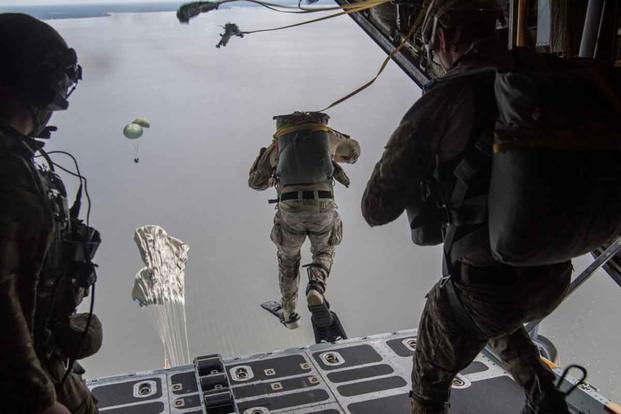
Every component in SOCOM, including its headquarters, has added new training for key ranks and duty positions, Griffin said.
In fall 2020, as a result of SOCOM's comprehensive review, Joint Special Operations University launched a new SOF Junior Officership Course for young officers heading to their first special operations assignment.
During that three-week course, young officers up to the rank of O-3 are taught about communication and leadership, the "big picture" of how SOF fits into national security, and ethics and culture. The class puts them through a series of situations that present tough moral quandaries; they must sort through how they would respond.
"They really get to exercise that ethical muscle in preparation for going out to the force," Griffin said.
Mitchell -- who oversaw the course's creation and teaches some portions, including ethics -- said the course often breaks students out into groups and has them work through exercises involving real-world scenarios.
These scenarios typically involve "close calls, gray areas, [where] they have to mete out what each of them sees as their perspective on right and wrong," Mitchell said. Some students have had to weigh the potential risks of carrying out a drone strike on a terrorist leader, or how to "speak truth to authority" when a commander issues a potentially dangerous order that might endanger their comrades' lives.
For now, the course is held online, but after the COVID pandemic ends, it will switch to a mix of distance learning and in-person lessons.
Top SOCOM leaders, both officers and enlisted, also may address students in the junior officer course, Griffin said.
Courses for enlisted troops at Naval Surface Warfare, Marine Forces Special Operations Command, Army Special Operations Command and Air Force Special Operations Command have also been stood up or revamped to include ethical training, Griffin said.
Looking at Senior NCOs
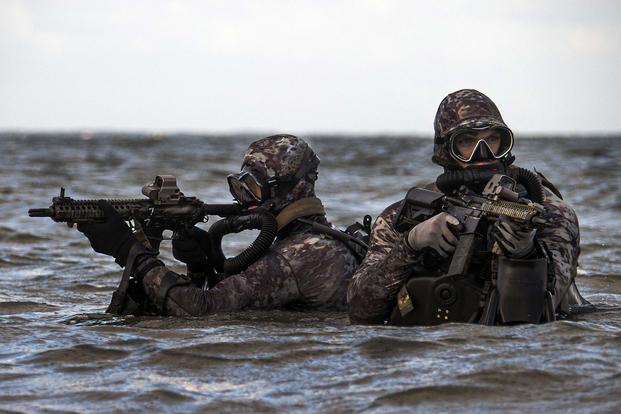
Several SOCOM components also are now conducting what Griffin called a "full evaluation" of senior noncommissioned officers before they take leadership positions in units such as a Navy SEAL platoon or a Special Forces A-Team. Those senior enlisted troops are evaluated on their character, leadership attributes, peer reviews and more, he said.
But, Robinson said, SOCOM needs to look more closely at strengthening its senior enlisted troops, who she said make up "the critical backbone of every tactical unit." Tactical units are typically made up primarily of noncommissioned officers, she said, and senior enlisted are critical to keeping their standards high.
When units go astray, there is often a senior enlisted service member involved, she said, adding that she believes the comprehensive review didn't do enough to address senior enlisted troops' roles and how to strengthen them.
"Some deeper look at what's going on with the senior NCO force could be useful to try to make sure that the leadership there understands where units may have gone astray, and what needs to be done to make sure that these incidents are [stopped]," Robinson said. "I think it needs to be really a zero-tolerance culture, after the number of infractions that have occurred."
Naval Surface Warfare has also instituted tactical ethics training, Griffin said, including a focus on rules of engagement and morality. Students in these classes are put in scenarios designed to simulate being deployed away from headquarters, where they face a tough decision, talk it through with their peers, and decide what would be the right call.
Much of the new training instituted or overhauled since the comprehensive review seeks to emphasize how important it is to stay loyal to the organization -- if necessary, more than staying loyal to the team, Griffin said.
"What can happen [during deployments], if leaders aren't present and engaged, there's the potential for small units to gain loyalty to each other, and not think about loyalty to the organization," he explained.
But sometimes, Griffin acknowledged, that can be a really hard call for a special operator to make. They may have gone through hell with their teammate. And if the operator sees that teammate do something unethical or illegal, it can be hard to put the good of the organization over loyalty to that teammate and say something.
However, Griffin said, in many recent cases, special operators have spoken up and told the truth about wrongdoing on the part of a teammate.
The review found that, in some cases, competence and experience with deployments was valued over character. Younger SOF troops sometimes looked up to the operator with many deployments and battles under his belt, even if he didn't demonstrate ethical behavior.
SOCOM saw a chance to improve the cadre of troops who access and select new civilian recruits or already-serving troops to join the ranks of special operators, Griffin said. Those cadre go through additional screening and onboarding to make sure they're "carrying the water" for the principles laid out by the comprehensive review, he said.
But these changes aren't going to happen overnight, he added.
"If we wrote the comprehensive review after 20 years of a post-9/11 environment of being overseas, then it's going to take -- not 20 years, but it's going to take us some time to reverse that," Griffin said. "It's going to be a generational cultural shift."
-- Stephen Losey can be reached at stephen.losey@military.com. Follow him on Twitter @StephenLosey.
Related: Spec Ops Culture Sets Conditions 'Favorable for Inappropriate Behavior,' 4-Star Says













